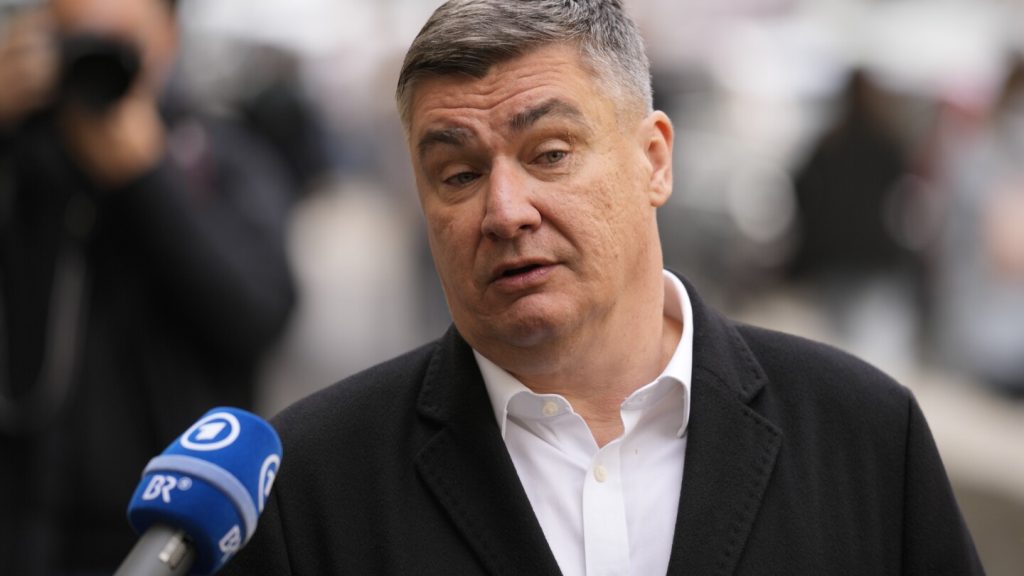The Constitutional Court in Croatia has banned President Zoran Milanović from becoming prime minister if his party manages to secure a majority in the recent parliamentary election. Despite his Social Democratic Party finishing second in the election, Milanović announced his intention to run for prime minister, ignoring warnings from the court that he needed to resign first. The court ruled that his behavior disqualified him from holding the position of prime minister, sparking criticism from Milanović and his party who argued that the parliament should have the right to choose the next prime minister.
Milanović and his party have condemned the court’s decision, claiming that it goes against the will of the people and interferes with the democratic process. They have called on other opposition groups to join forces to form a new government without the center-right Croatian Democratic Union, which won the most votes in the election but did not secure enough seats to rule alone. The political showdown between Milanović and Prime Minister Andrej Plenković, who has been accused of corruption, has overshadowed the election and is seen as a test ahead of European Parliament elections in June.
Milanović’s criticism of EU policies, particularly regarding the war in Ukraine, has raised concerns about a potential shift towards stronger pro-Russia influence in Croatia if he were to form a government. With the HDZ winning 61 parliamentary seats and the SDP gaining 42, the far-right Homeland Movement has emerged as a potential kingmaker with 14 seats. The Constitutional Court’s decision to prevent Milanović from becoming prime minister, even if he were to resign as president, has sparked accusations of bias and allegations that the court is controlled by the ruling conservatives.
Opposition politicians, including former Prime Minister Jadranka Kosor and leftist politician Dalija Orešković, have criticized the Constitutional Court, describing it as a “captured institution” that is acting against the constitution itself. The HDZ has dominated Croatian politics since the country gained independence, with Croatia becoming an EU member in 2013 and joining the eurozone last year. Despite the controversy surrounding the election and the Constitutional Court’s ruling, a presidential election is set to take place in Croatia by the end of the year, further shaping the country’s political landscape.
The outcome of the recent parliamentary election in Croatia has left the country in a state of political uncertainty, with the ruling of the Constitutional Court adding to the contentious nature of the situation. The battle between President Zoran Milanović and Prime Minister Andrej Plenković has taken center stage, with accusations of corruption and concerns about potential pro-Russia influence shaping the political discourse. As Croatia grapples with the aftermath of the election and the implications of the court’s decision, the future direction of the country’s government remains uncertain. The upcoming presidential election will provide further insight into the shifting political dynamics in Croatia and the impact of recent events on the country’s democratic process.


